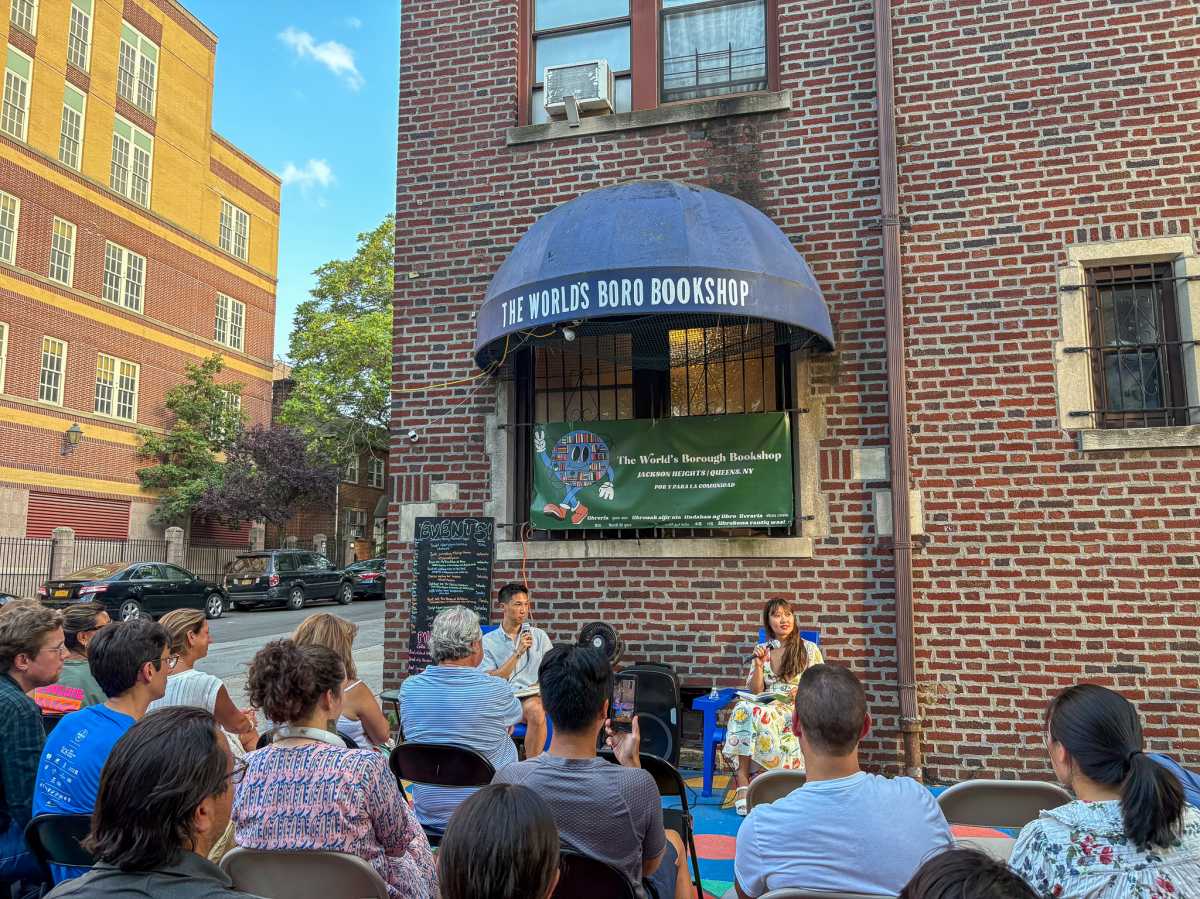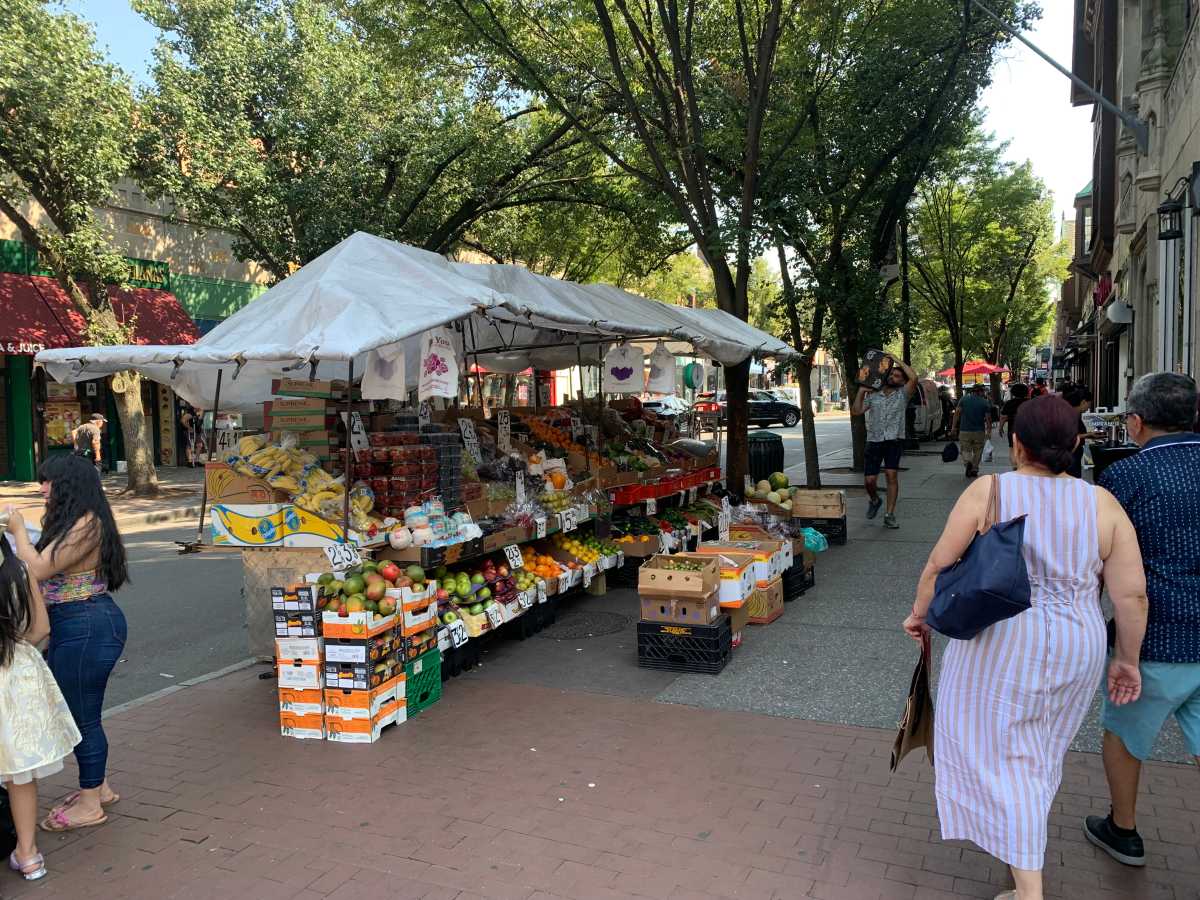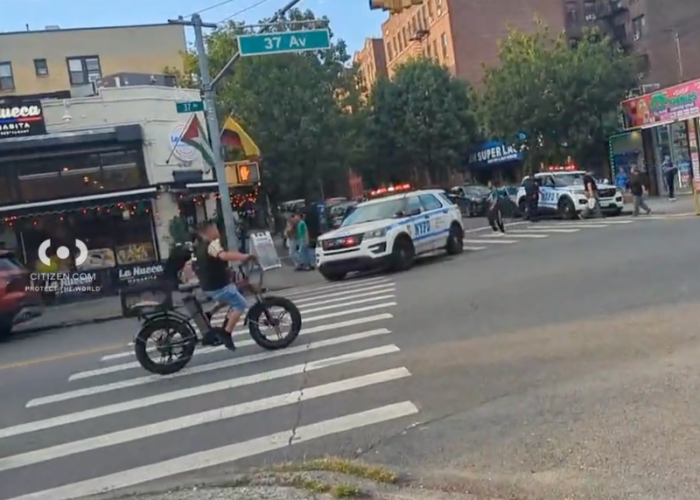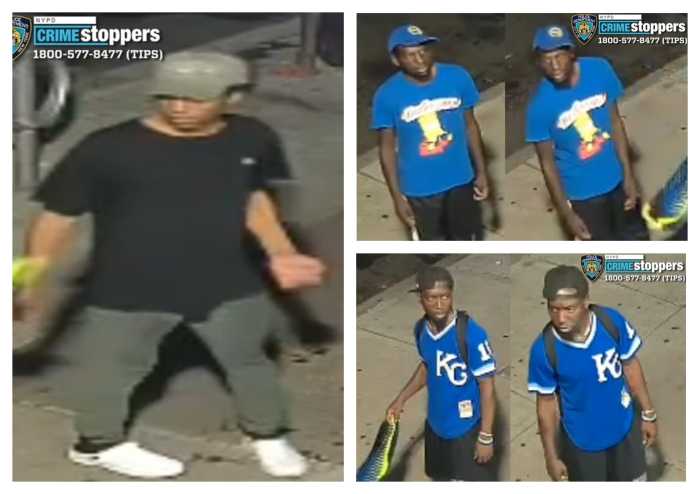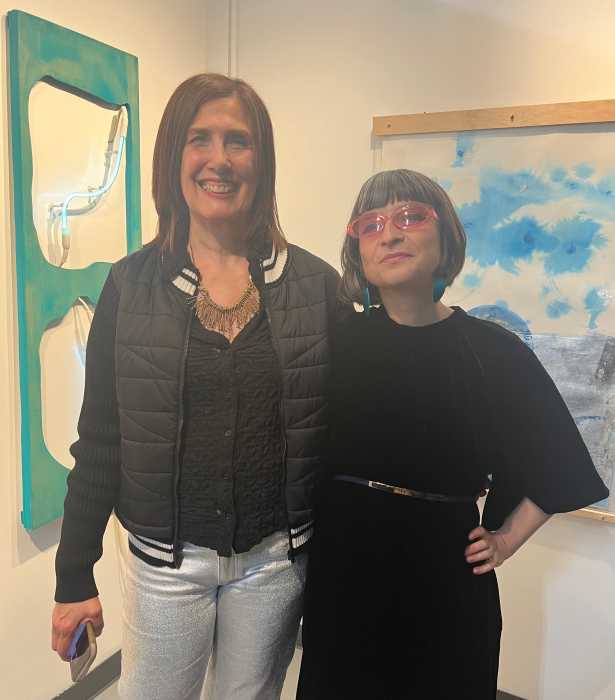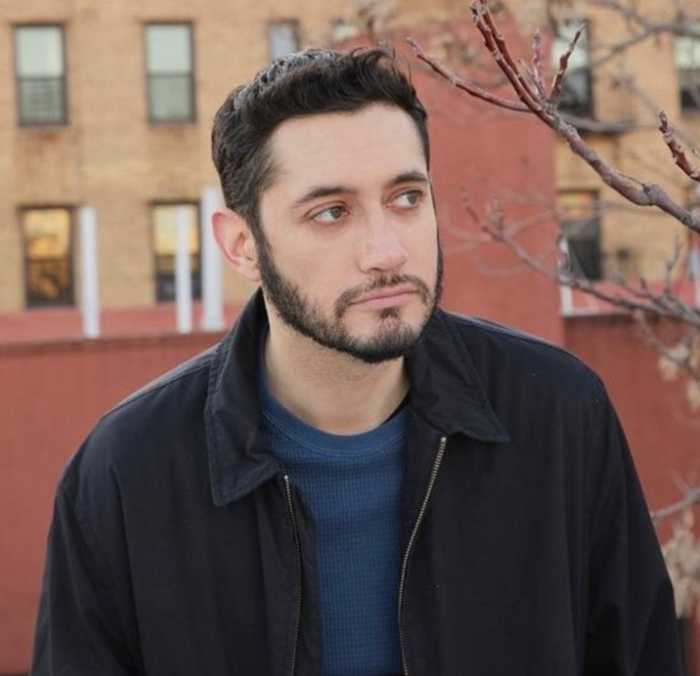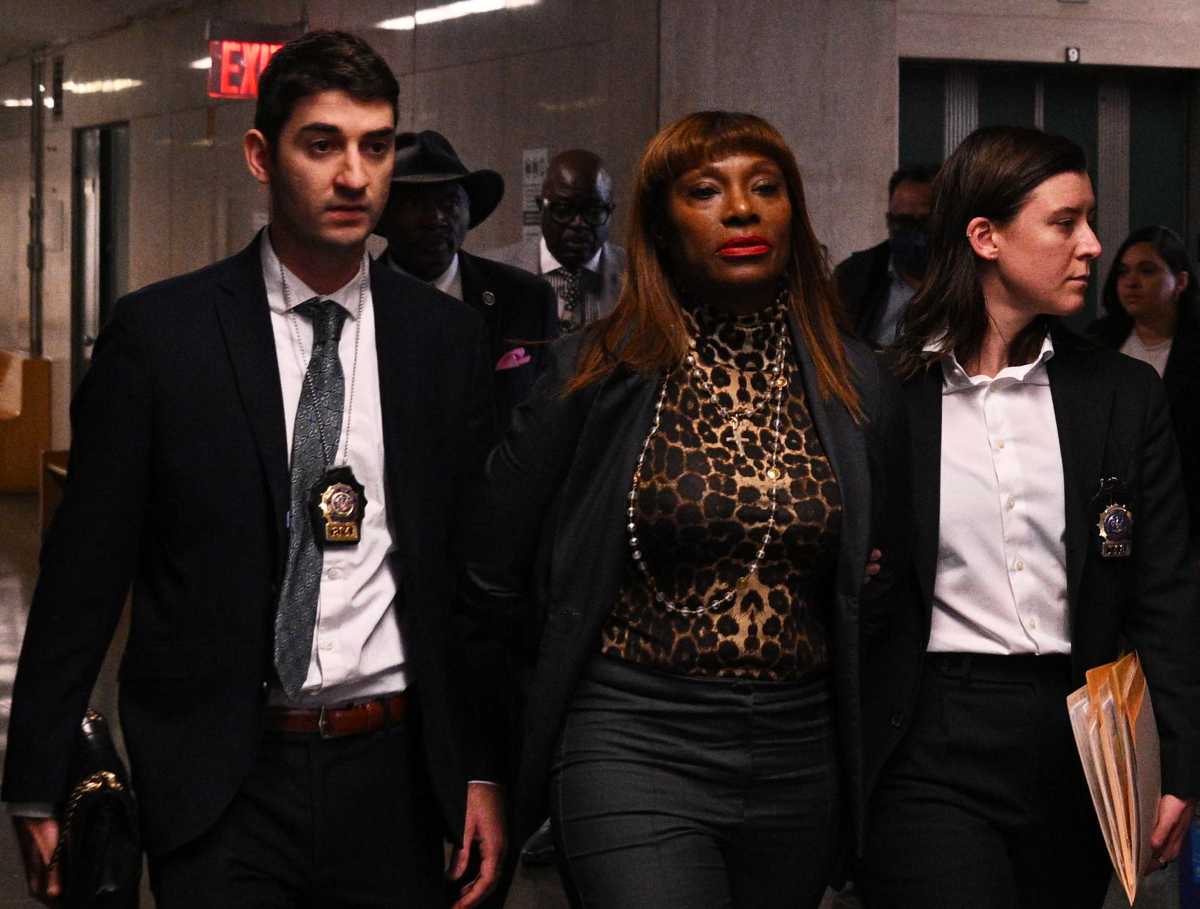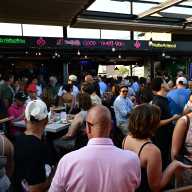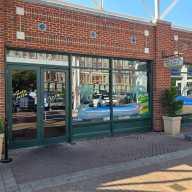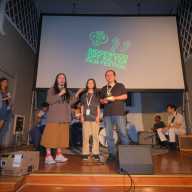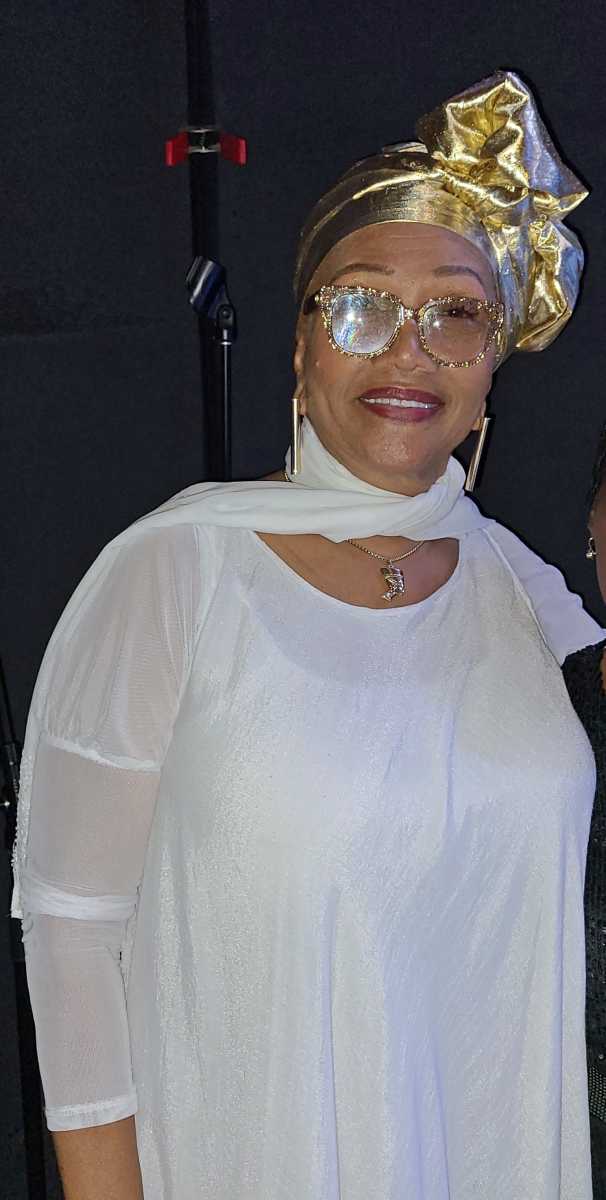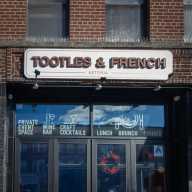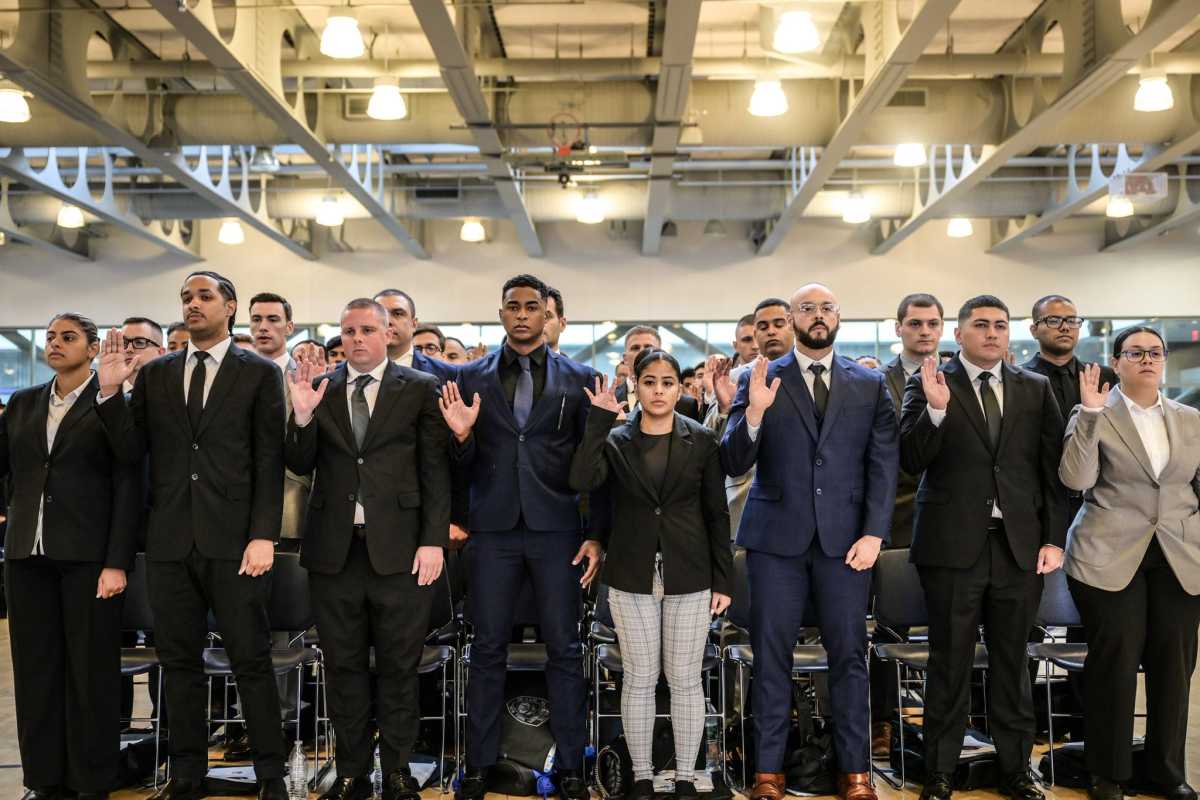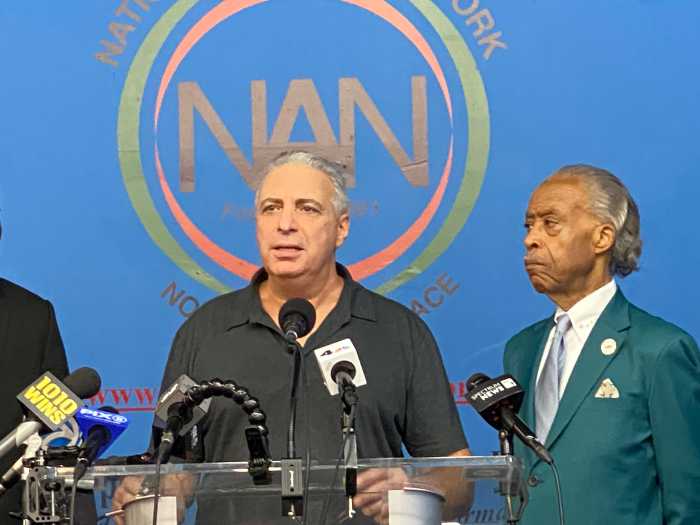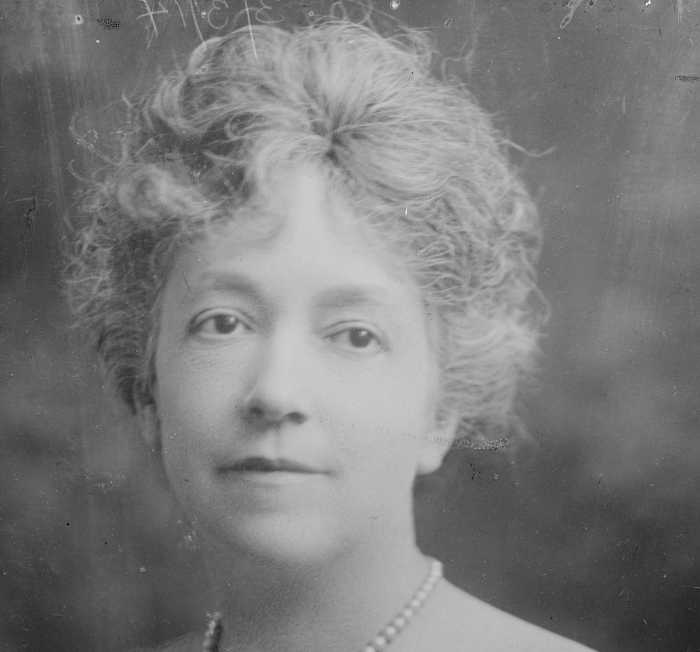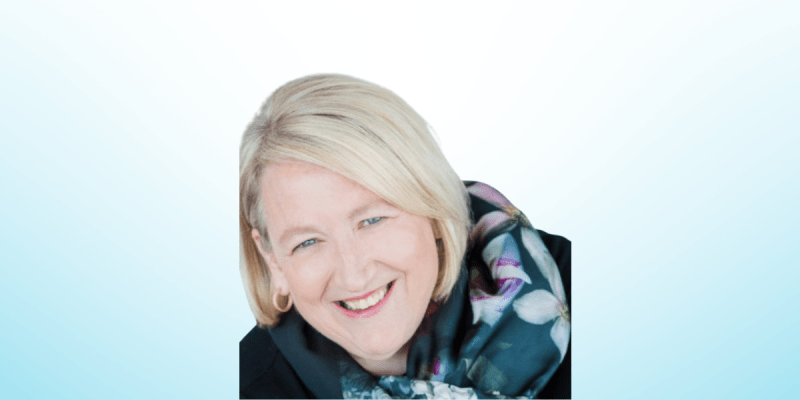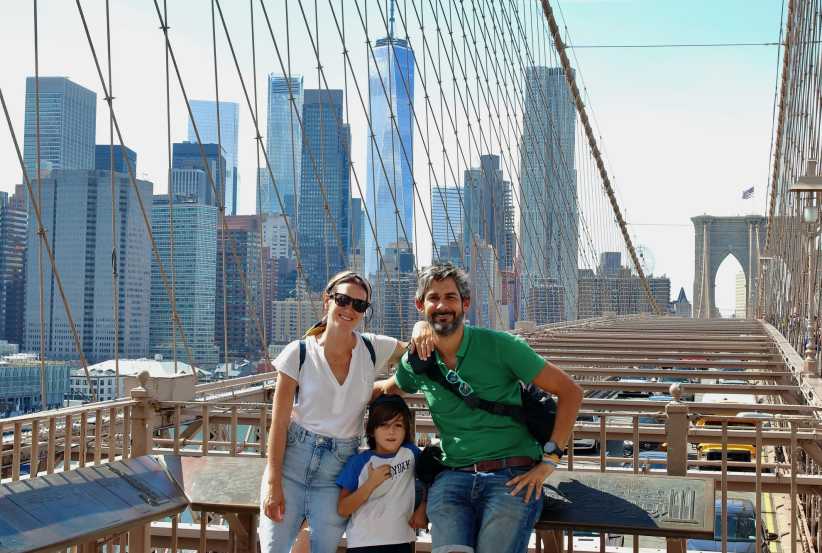Because Martha’s Vineyard is associated with wealthy vacation destinations, the island’s coastline charm often conceals its Indigenous origins.
In his debut book “Nothing More of This Land: Community, Power, and the Search for Indigenous Identity,” Joseph Lee, an award-winning journalist and member of the Aquinnah Wampanoag Tribe, reflects on his Indigenous identity as he recounts his upbringing in Martha’s Vineyard and explores the challenges faced by national and international tribes.
As part of his East Coast book tour, Lee hosted an interactive conversation with Katie Yee, a Brooklyn-based writer and author, last month at The World’s Borough Bookshop (TWBB) in Jackson Heights. Despite the summer heat, neighbors, friends and curious bookworms enthusiastically welcomed Lee with a copy in hand. Adrian Cepeda, the founder of TWBB, congratulated Lee on publishing a personal account that will encourage audiences to reclaim their cultural identities and take up space across all spheres.
In selecting a Queens venue for his book talk, Lee chose TWBB because of its commitment to uplifting BIPOC authors in the world of literature.
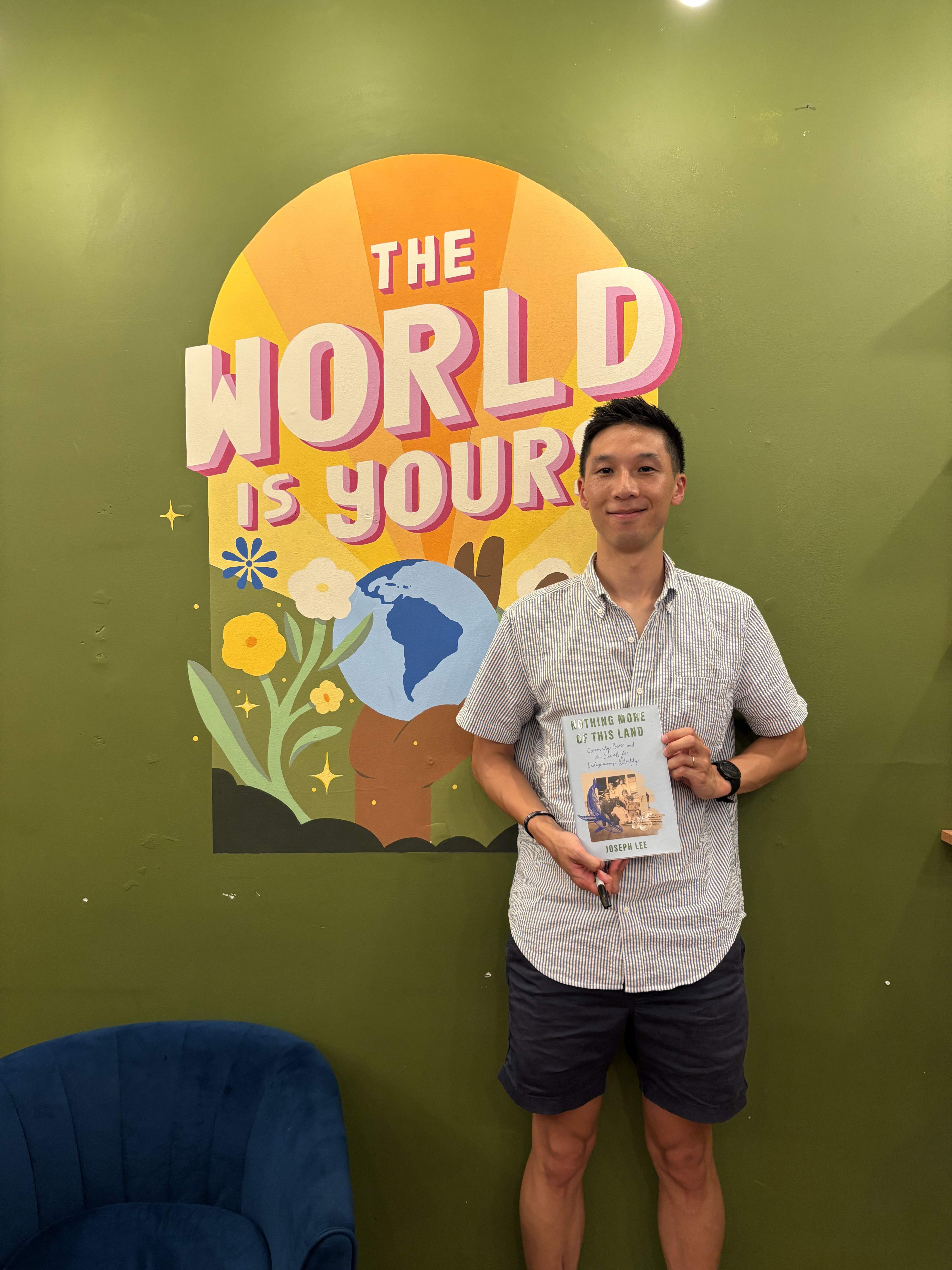
“Adrian [Cepeda] does a great job in [not just running] a bookstore, but a real community space that amplifies voices that are often ignored or overlooked,” Lee said.
When asked what he hoped to achieve with his book, Lee expressed his desire for readers to become familiar with Martha’s Vineyard through the lived experiences of its native inhabitants in Noepe, the island’s nickname stemming from the Wampanoag language.
“More broadly, I’m hoping people gain a more complex, nuanced understanding of Indigenous identity [and] Indigenous communities from it,” Lee said. “Most importantly, I really hope that Indigenous readers will get something from it and learn from it and see themselves in it.”
In the process of writing “Nothing More of This Land,” Lee drew inspiration from several Indigenous authors. One of his influences was Linda Coombs, the author of “Colonization and the Wampanoag Story,” who wrote a “reimagining of what life was like before colonization.”
Another notable author who inspired Lee is Morgan Talty, a native writer who penned the acclaimed novel “Fire Exit” and the national bestseller “Night of the Living Rez.” Jon Hickey, the author of the forthcoming novel “Big Chief,” an examination of tribal politics and community, was also mentioned.
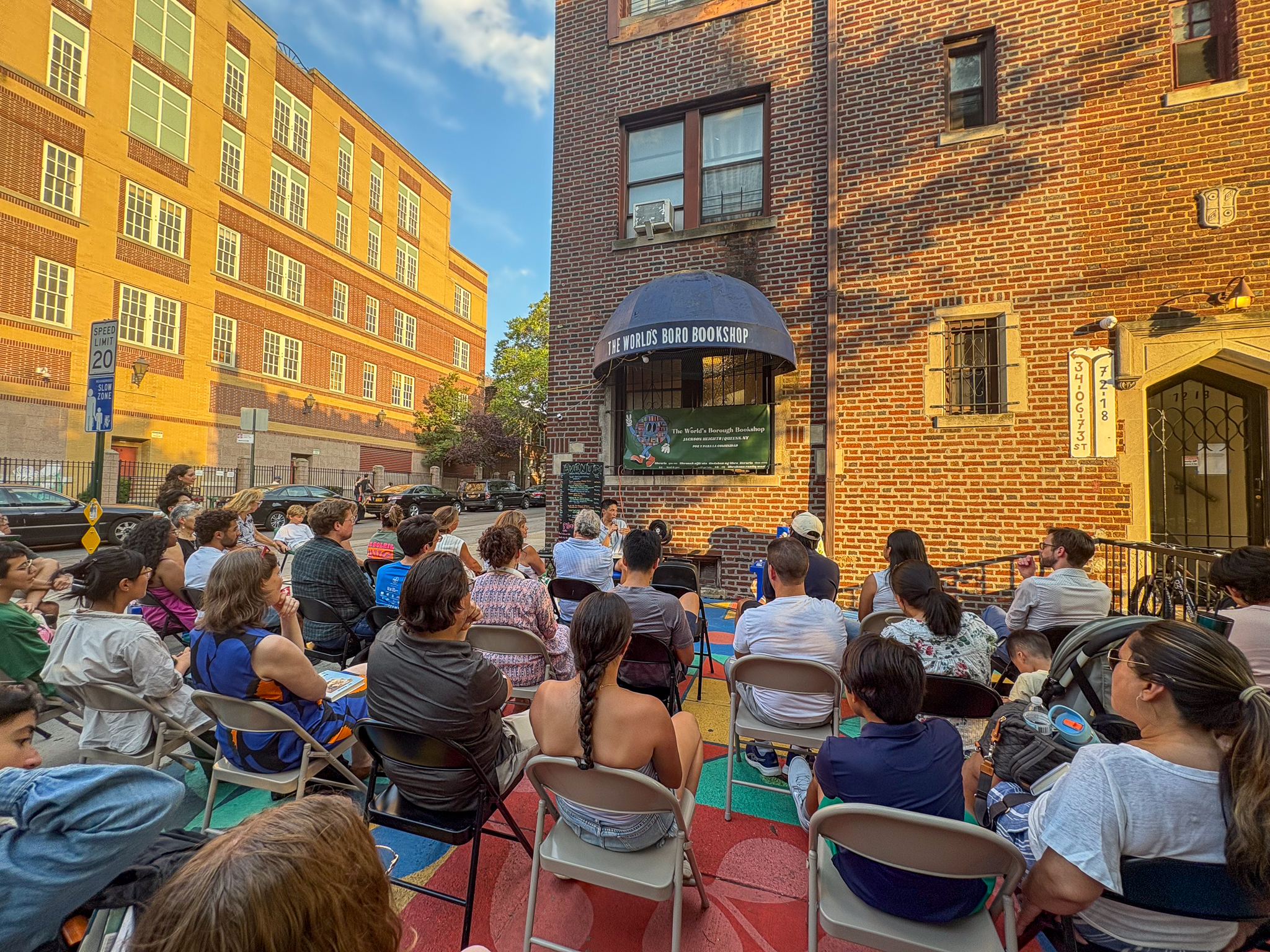
The main challenges of tribal communities that resonated most with Lee are environmental and personal obstacles. As a journalist who worked for a climate news outlet, Lee noted that everyone, regardless of cultural affiliation, experiences existential concerns that impact their livelihood, such as sweltering temperatures, melting ice and increased droughts. The personal obstacles involve finding ways to participate in their communities and feeling comfortable with themselves.
Lee discussed the most rewarding passages in his writing drafts. He enjoyed connecting with tribes during his nearly two-year reporting trips, from the Klamath Basin in Southern Oregon and Northern California to the Alaskan tundra. By observing daily activities, including work commutes and grocery runs, Lee immersed himself in their lifestyles. He also appreciated the opportunity to engage with “people who are thinking about a lot of the same issues as my community,” as Lee recounted.
At the same time, Lee felt that he had a responsibility to “get the right words on the pages” and conduct research to ensure accurate storytelling.
“It’s a gift when people share their stories with you, and so you have a huge responsibility to tell it in a way that I think honors that gift,” Lee added.
One of the surprising discoveries that Lee encountered was that his questions about Indigenous identity mirrored the questions that other people were seeking answers to.
“When I was growing up and had these questions about myself, I thought everybody else already had it figured out,” Lee explained. “By talking to people, you come to learn that a lot of people are also dealing with these things and trying to figure out who they are, how they can fit in and how they can be a part of their community.”
Reflecting on his advice for aspiring authors, Lee would motivate people to “go for it” by writing every day and maintaining a curious, open-minded attitude. Lee further emphasized that it never hurts to expand our worldview.
“The world needs more stories, so I would encourage people to feel confident and feel like they have something to say and something to offer,” Lee said. “The more diverse stories we have, the better.”
You can catch Lee on the rest of his East Coast book tour at the Providence Book Festival in Providence, MA from Friday, September 19 to Sunday, September 21. The final date is scheduled on Saturday, September 27 at The History Book Festival with Browseabout Books in Lewes, Delaware.
To find out more about Lee’s career, click here.

